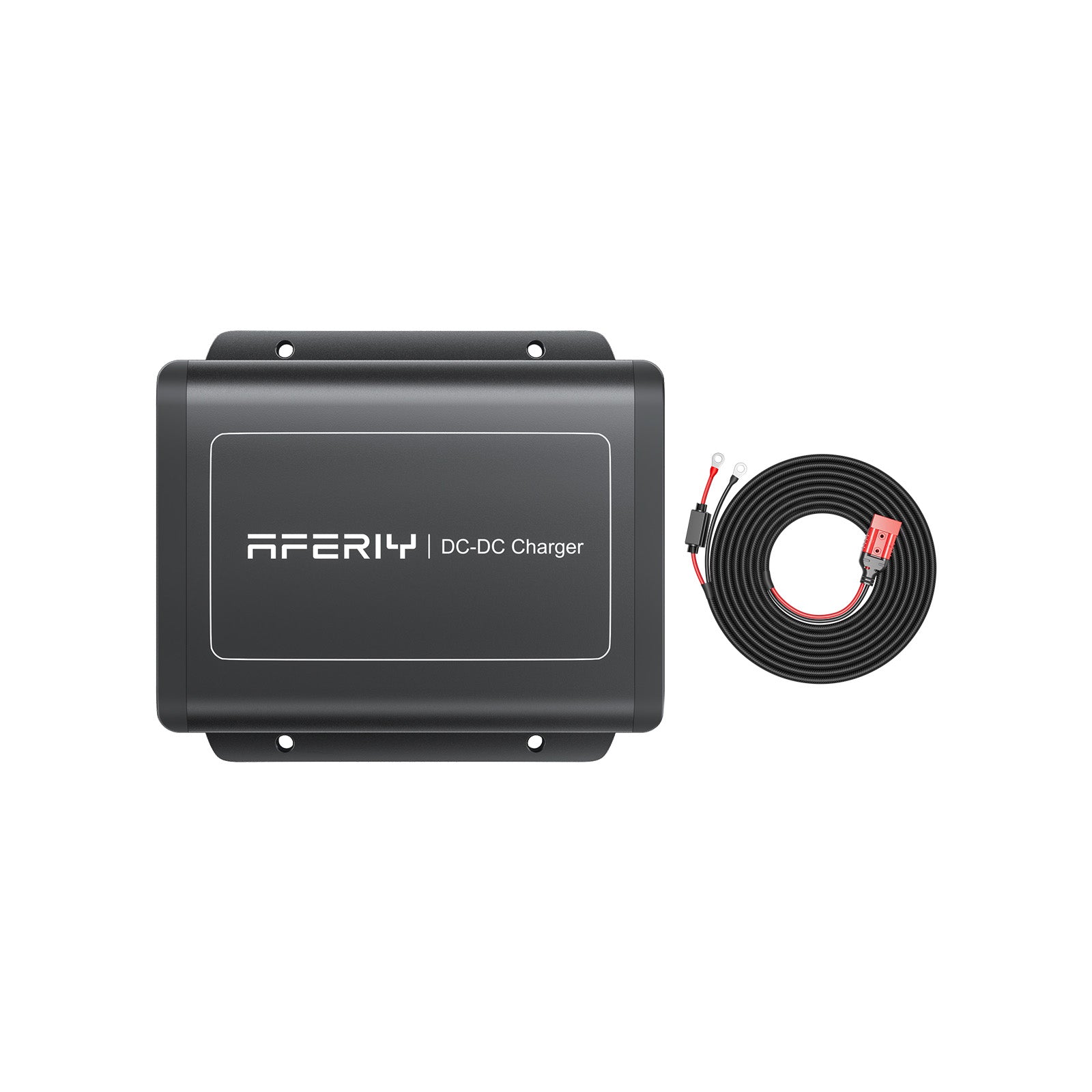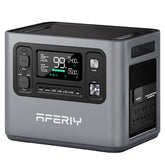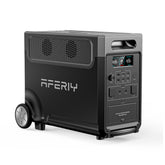How to Choose a Right Solar Generator for Your Camping Needs
Camping offers a chance to connect with nature. A solar powered generator enhances this experience. The best solar generator for camping provides clean energy without noise. This rechargeable power station powers devices efficiently. Portable solar panels capture sunlight, ensuring a steady energy supply. A solar panel extension cable increases flexibility in setup. Enjoy the convenience of sustainable power on your adventures.
Understanding Solar Generators
What is a Solar Generator?
Basic components and functionality
A solar generator consists of solar panels and battery packs. When you are outdoors or suffer power outages, solar generators come into play this time. The solar panels collect sunlight and convert it into electricity which is stored in a battery pack. And then you need to use electricity, the battery pack converts the stored energy into usable alternating current (AC) power through an internal inverter.

Differences between solar generators and traditional generators
Solar generators differ from traditional generators in several ways. Solar generators use renewable energy from the sun. Traditional generators rely on fossil fuels like petrol or diesel. Solar generators operate quietly without emissions. Traditional generators produce noise and exhaust fumes. Solar generators require portable solar panels for charging. Traditional generators need fuel refills.
How Solar Generators Work
Solar panels and energy conversion
Portable solar panels play a crucial role in energy conversion. The panels capture sunlight and convert it into direct current (DC) electricity. This process involves photovoltaic cells within the panels. The cells absorb photons from the sun, releasing electrons. The movement of electrons generates electricity.
Storage and power output
The generated electricity flows into a battery for storage. The battery stores the energy until needed. When you require power, the inverter converts the stored DC electricity into alternating current (AC). This conversion allows you to power devices like lights, phones, and laptops. Portable solar panels ensure a continuous energy supply during daylight hours.
Key Factors to Consider
Power Requirements
Estimating your energy needs
Understanding energy needs ensures a successful camping trip. List all devices you plan to use. Add the wattage of all devices. This total gives an estimate of energy requirements. Consider extra energy for unforeseen needs.

Matching generator capacity to your needs
Choose a solar generator with suitable capacity. Ensure the generator can handle the total wattage. A generator with higher capacity provides a buffer. This buffer prevents power shortages. Consider future needs when selecting capacity.
Portability and Size
Weight considerations for camping
Weight plays a crucial role in camping. Lightweight generators ease transportation. Heavy generators cause strain and inconvenience. Check the generator's weight before purchase. Choose a model that suits your carrying capacity.

Compact designs and ease of transport
Compact designs offer convenience. Smaller generators fit easily in camping gear. Transporting compact models requires less effort. Look for foldable or stackable features. These features enhance portability and storage.
Battery Capacity and Type
Understanding battery ratings
Battery ratings indicate energy storage. Watt-hours (Wh) measure battery capacity. Higher Wh means more stored energy. Check the battery rating before buying. Ensure the rating meets your energy needs.
Types of batteries used in solar generators
Solar generators use different battery types. Lithium-ion batteries offer lightweight and efficient storage. Lead-acid batteries provide durability and cost-effectiveness. Each type has pros and cons. Consider weight, efficiency, and budget when choosing a battery type.

Charging Options
Solar panel compatibility
Solar panel compatibility is crucial for efficient charging. Ensure the solar generator matches the specifications of the solar panels. Check the voltage and wattage ratings. Compatible solar panels optimise energy capture. The solar panel extension cable enhances flexibility in positioning. Proper alignment with the sun maximises energy absorption. The right setup ensures a steady power supply during camping.
Alternative charging methods
Alternative charging methods provide versatility. Many solar generators support multiple charging options. AC outlets offer a quick recharge at home. Car chargers provide convenience on the road. USB ports allow charging from various devices. Each method offers unique benefits. Evaluate each option based on accessibility and convenience. A versatile generator ensures power availability in diverse situations.
Best Solar Generator for Camping
Recommended Brands and Models
Overview of leading manufacturers
A range of manufacturers produce the best solar generator for camping. Jackery, Goal Zero, and Aferiy lead the market. Each brand offers unique features and reliability. Jackery provides compact and efficient models. Goal Zero focuses on durability and versatility. Aferiy stands out with innovative technology and user-friendly designs.
Key features of popular brands
Aferiy delivers advanced solar powered generator solutions. Users benefit from quick charging and long-lasting power.

Best Models for Camping
Model comparisons and reviews
Aferiy's latest model excels in rapid charging and energy efficiency. Campers enjoy extended usage with minimal downtime.
Common Mistakes to Avoid
Overlooking Power Needs
Consequences of underestimating energy requirements
Underestimating energy needs leads to power shortages during camping trips. Devices stop working when the generator cannot meet demands. Frustration arises when essential gadgets lack power. Campers experience inconvenience without sufficient energy supply. Planning becomes difficult without reliable power.
Tips for accurate power estimation
Accurate power estimation ensures a smooth camping experience. List all devices intended for use. Check each device's wattage rating. Calculate total energy needs by adding wattages together. Consider additional power for unexpected situations. Choose a generator with capacity exceeding calculated needs.
Ignoring Portability
Challenges of transporting heavy generators
Heavy generators pose challenges during transportation. Campers struggle with lifting and carrying bulky equipment. Mobility decreases when weight exceeds manageable limits. Setting up camp becomes time-consuming with cumbersome generators. Heavy models occupy excessive space in camping gear.
Solutions for enhancing portability
Enhancing portability improves camping convenience. Select lightweight solar generators for easy transport. Opt for compact designs that fit into limited spaces. Look for models with handles or wheels for effortless movement. Consider foldable features for efficient storage. Prioritise ease of transport when choosing a solar generator.
Conclusion
You have explored the essential aspects of choosing a solar generator for camping. Understanding power needs and portability ensures a successful camping experience. Evaluating battery capacity and charging options helps in making an informed choice. Consider personal camping requirements when selecting a solar generator. A suitable model enhances your outdoor adventures with reliable energy. Prioritise features that align with your camping style. A well-chosen solar generator provides convenience and sustainability. Enjoy the benefits of clean energy on your next camping trip.























Leave a comment
Please note, comments need to be approved before they are published.